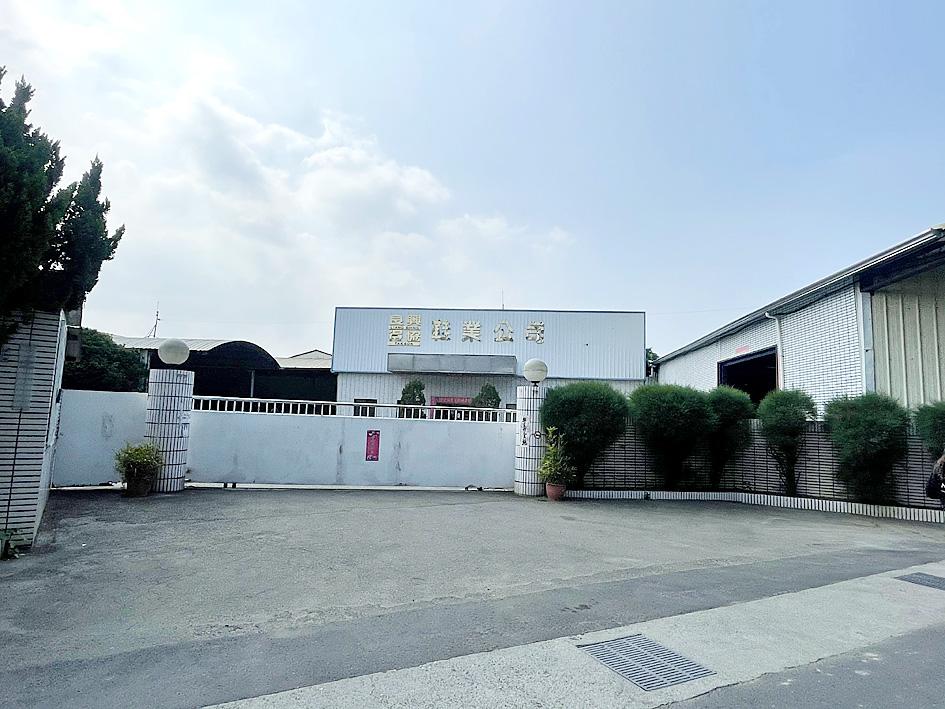Zhang Cong-yuan (張聰淵), founder of contract shoemaker Huali Industrial Group Co Ltd (華利集團), has taken the title of Taiwan’s richest person, with a net worth of US$13.8 billion, Forbes announced in its Taiwan’s Richest 2021 list.
It was the first time that the low-key, self-made tycoon ranked No. 1 on Forbes’ list of the top 50 billionaires in Taiwan.
Huali Industrial, which owns production facilities in China, Vietnam and the Dominican Republic, supplies international customers such as Nike Inc, Puma AG, UGG and Vans, the magazine said.

Photo: Lin Kuo-hsien, Taipei Times
Zhang, who started his shoe business in Yunlin County, last month took Huali Industrial public on the Shenzhen Stock Exchange and saw his wealth significantly boosted by a skyrocketing share price.
Media reports said that Huali Industrial owns 43 subsidiaries, which run 21 plants worldwide.
In 2019, the parent company produced more than 180 million pairs of shoes, generated sales of 15 billion yuan (US$2.33 billion) and raked in net profit of 1.82 billion yuan.
As the firm relocated resources overseas, the scale of its Yunlin base shrank to a workforce of about 20, from more than 300 workers three decades ago.
Brothers Tsai Hong-tu (蔡宏圖) and Tsai Cheng-ta (蔡政達) of Cathay Financial Holdings Co (國泰金控) retained the No. 2 spot, with a net worth of US$9.2 billion, Forbes said.
Brothers Daniel Tsai (蔡明忠) and Richard Tsai (蔡明興) of Fubon Financial Holding Co (富邦金控) rose two notches from last year to No. 3, with a net worth of US$7.9 billion.
Brothers Wei Ing-chou (魏應州), Wei Ying-chiao (魏應交), Wei Ying-chun (魏應充) and Wei Ying-heng (魏應行) of food conglomerate Ting Hsin International Group (頂新集團) fell from the top spot to No. 4, with a net worth of US$7.8 billion.
The fifth-richest were brothers Jason Chang (張虔生) and Richard Chang (張洪本) of IC packaging and testing services provider ASE Group (日月光集團), with a net worth of US$7.2 billion.
Terry Gou (郭台銘), founder of Hon Hai Precision Industry Co (鴻海精密), dropped to No. 6 from No. 4 last year, although his net worth rose to US$7.1 billion from US$6.9 billion, Forbes said.
Tsai Eng-meng (蔡衍明), chairman of the food conglomerate Want Want Group (旺旺集團), came in at No. 7 with a net worth of US$6.1 billion, followed by Quanta Computer Inc (廣達電腦) chairman Barry Lam (林百里) at No. 8 with US$5.8 billion, Yageo Corp (國巨) chairman Pierre Chen (陳泰銘) at No. 9 with US$5 billion and Chang Chun Group (長春集團) chairman Lin Shu-hong (林書鴻) at No. 10 with US$4.8 billion.

In Italy’s storied gold-making hubs, jewelers are reworking their designs to trim gold content as they race to blunt the effect of record prices and appeal to shoppers watching their budgets. Gold prices hit a record high on Thursday, surging near US$5,600 an ounce, more than double a year ago as geopolitical concerns and jitters over trade pushed investors toward the safe-haven asset. The rally is putting undue pressure on small artisans as they face mounting demands from customers, including international brands, to produce cheaper items, from signature pieces to wedding rings, according to interviews with four independent jewelers in Italy’s main

Japanese Prime Minister Sanae Takaichi has talked up the benefits of a weaker yen in a campaign speech, adopting a tone at odds with her finance ministry, which has refused to rule out any options to counter excessive foreign exchange volatility. Takaichi later softened her stance, saying she did not have a preference for the yen’s direction. “People say the weak yen is bad right now, but for export industries, it’s a major opportunity,” Takaichi said on Saturday at a rally for Liberal Democratic Party candidate Daishiro Yamagiwa in Kanagawa Prefecture ahead of a snap election on Sunday. “Whether it’s selling food or

CONCERNS: Tech companies investing in AI businesses that purchase their products have raised questions among investors that they are artificially propping up demand Nvidia Corp chief executive officer Jensen Huang (黃仁勳) on Saturday said that the company would be participating in OpenAI’s latest funding round, describing it as potentially “the largest investment we’ve ever made.” “We will invest a great deal of money,” Huang told reporters while visiting Taipei. “I believe in OpenAI. The work that they do is incredible. They’re one of the most consequential companies of our time.” Huang did not say exactly how much Nvidia might contribute, but described the investment as “huge.” “Let Sam announce how much he’s going to raise — it’s for him to decide,” Huang said, referring to OpenAI

Nvidia Corp’s negotiations to invest as much as US$100 billion in OpenAI have broken down, the Wall Street Journal (WSJ) reported, exposing a potential rift between two of the most powerful companies in the artificial intelligence (AI) industry. The discussions stalled after some inside Nvidia expressed concerns about the transaction, the WSJ reported, citing unidentified people familiar with the deliberations. OpenAI makes the popular chatbot ChatGPT, while Nvidia dominates the market for AI processors that help develop such software. The companies announced the agreement in September last year, saying at the time that they had signed a letter of intent for a strategic